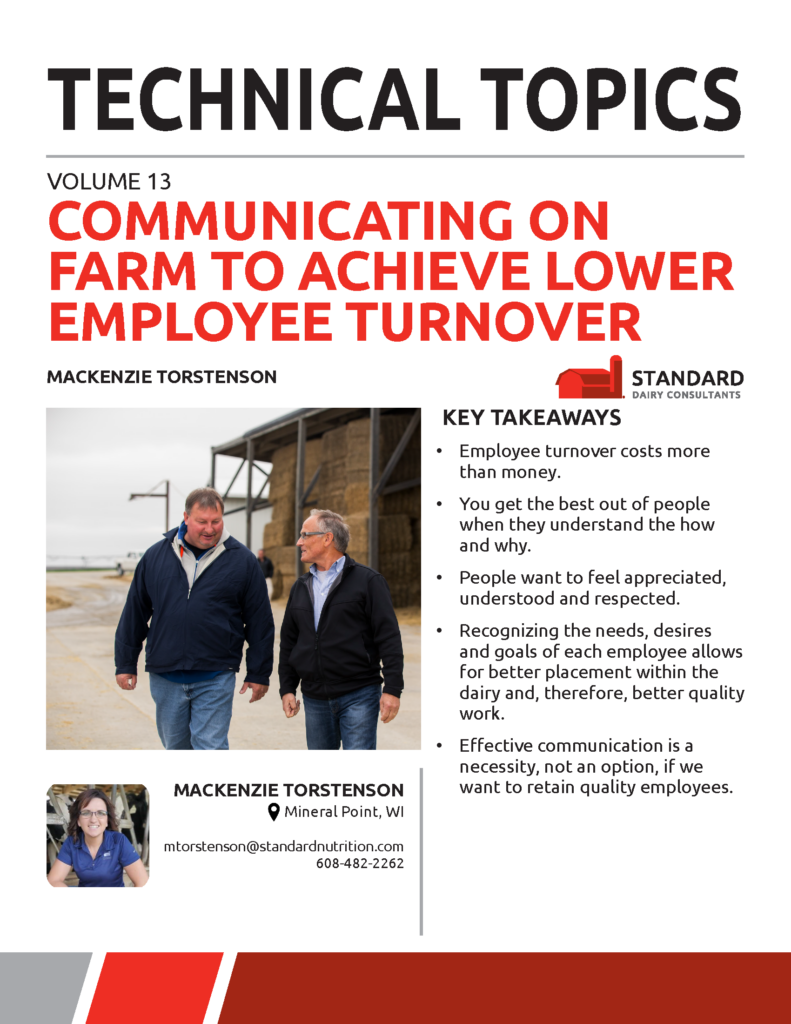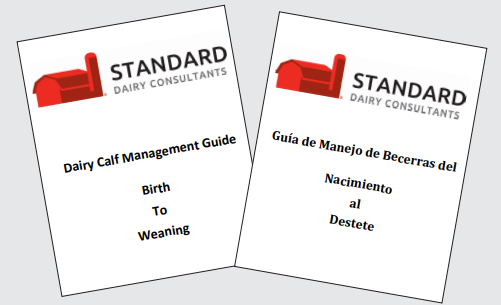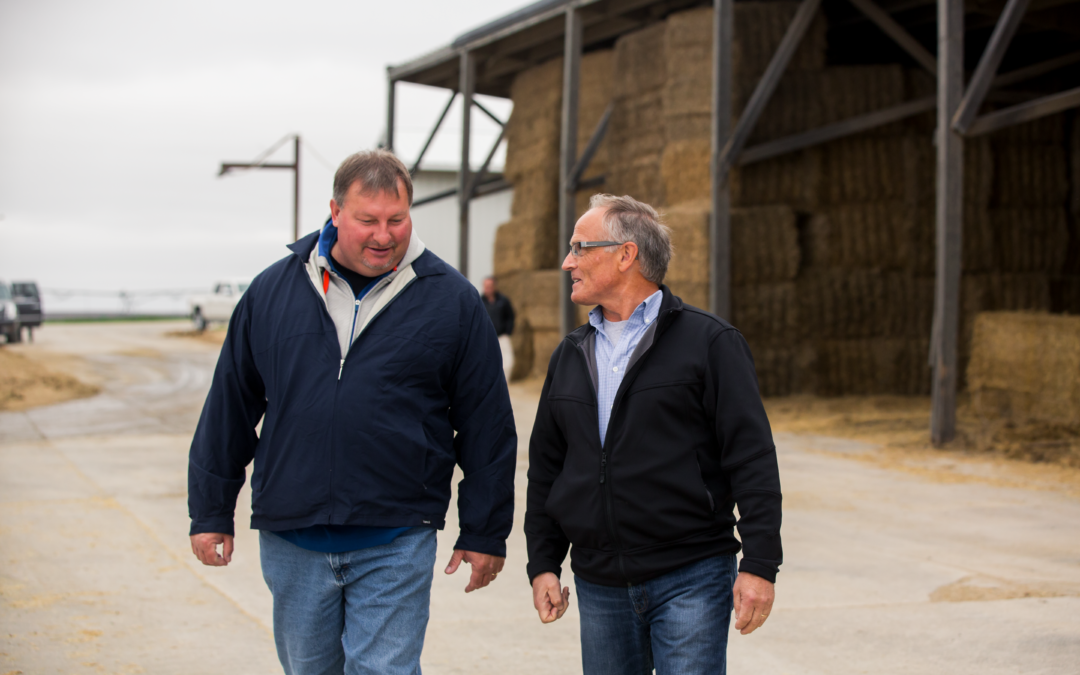Written by: Mackenzie Torstenson
KEY TAKEAWAYS IN THIS ISSUE OF TECHNICAL TOPICS:
- Employee turnover costs more than money.
- You get the best out of people when they understand the how and why.
- People want to feel appreciated, understood and respected.
- Recognizing the needs, desires and goals of each employee allows for better placement within the dairy and, therefore, better quality work.
- Effective communication is a necessity, not an option, if we want to retain quality employees.

ACHIEVING LOWER EMPLOYEE TURNOVER
Managing a dairy business in today’s world is complex and challenging. It is a bit like putting together a puzzle, where every piece is critical to overall success. One piece of the puzzle that often does not get enough attention is labor. We all know you can’t optimize overall dairy performance without a high-performing team of people. That holds true whether it’s a family member or hired labor.
Finding and retaining farm labor has gotten tougher over the past few years. The days of having people knock on the door looking for work are gone. Dairies have learned they need to offer a salary and benefits competitive with what prospective employees can get at other workplaces in the area. That alone will get you in the hiring game but will not help retain good employees. We will discuss below the cost of employee turnover, why people leave their jobs, and what you can do to not only improve communication, but also employee retention.
WHAT DOES EMPLOYEE TURNOVER COST THE DAIRY?
Certainly, it costs the dairy manager time and attention to recruit and hire a person to fill a role. Finding qualified, dependable help is not an easy task or one that is taken lightly. And we are all experiencing wage inflation happening in the market today, so the monetary cost of replacing an employee is growing. But those costs can be the tip of the iceberg. What are the cost to worker morale and the cost to train and onboard a new employee? At a minimum, when a laborer exits their position, it requires those who remain to cover their workload. In addition, those remaining workers must help train a new individual who is just getting started. This puts a major strain on employees as they try to navigate their way through extended hours, potential language barriers, and frustrations of juggling tasks they were not previously assigned. A recent article in Forbes talked about the domino effect created by an employee leaving.
The stress can be so high on the remaining employees that they also decide to leave. Instead of dealing with high turnover rates and the potential domino effect, try focusing on how to retain good, responsible individuals, who truly value their position on the dairy and the work they are doing.
WHY DO PEOPLE LEAVE THEIR JOBS?
In the book “The 12 Elements of Great Managing” by Rodd Wagner & James Harter, they claim that eight out of 10 people who leave their jobs do so because of their manager. Often, it is because the manager does not communicate expectations well or doesn’t appreciate them as a person. Surprisingly, they are NOT often leaving their jobs over monetary issues or benefits. Some of the elements discussed in the book include: 1) knowing what is expected of me; 3) an opportunity to do what I do best; 4) recognition and praise; 7) my opinion seems to matter, and 12) I have an opportunity to learn and grow.
While all 12 elements are critical, we will comment on the following five:
“I know what is expected of me.” When an employee fully understands the “what” and “why” behind what they have been asked to do, they are twice as likely to do it at a high standard. This includes knowing specifically what is expected of them for an outcome. It is also important for them to know why it is important to the dairy and/or them. For example: We need the stalls groomed every milking, so cows stay clean, and we limit our cases of mastitis. This will keep cows healthy, help the dairy ship more milk, and maximize our milk quality premiums. Your bonus is driven by those issues. This cannot be a one-time conversation had with only one team member. For the dairy to run efficiently and effectively, this type of communication needs to happen regularly with all dairy team members. Follow through with workers on a timely basis not only establishes consistency, but helps them feel valued, seen, and heard.
“I have an opportunity to do what I do best.” Recognize the needs, desires, goals, and frustrations of each employee. When employees feel confident and comfortable with management, they are more likely to ask questions, speak freely and respect to hers. Because they feel respected, it is likely that they will do more than what is asked of them and do it at a higher quality level. Communicating with employees and taking the time to learn about each of them genuinely helps set producers and managers up for more success as they can position each person in the area best suited for them.
“I receive frequent recognition and praise for my work.” Communicating and evaluating each employee’s needs, goals and cultural differences can open doors in practical ways to motivate all team members. Rewarding and recognizing individuals for the effort they put forward is a critical opportunity many dairies are taking advantage of today. Day to day, it is easy to get lost in the hustle and bustle of what is happening. But, like most of us, it is always nice to hear how we are appreciated for our efforts and accomplishments. For many dairies, developing a recognition program based on performance has been a successful tool. Celebrating birthdays, anniversaries or cultural events within the dairy strengthens the team and lets employees know individually they are an important piece of what the dairy is trying to accomplish.
“My opinion seems to matter.” Having consistent reviews and team meetings with each work group allows individuals to feel respected, heard, and appreciated. This gives managers and owners the opportunity to hear from coworkers on how they feel daily operations are going and what could be done better to improve the work environment. When we take the time to sit down and go over goals for the next phase of what is to come, we listen to current challenges and develop a plan within each sector of employees. We empower these individuals to know they are valued at a higher level and, ultimately, appreciated more for their efforts to keep the dairy running well. When someone feels appreciated, understood, and respected in their line of work, they are more likely to stay in that position, even if compensation is not at the top tier level compared to other opportunities. When employees do not feel they have been treated fairly, it is easier to walk away and search for something that better suits their needs.
“I have an opportunity to learn and grow.” Continually offering training and opportunities to develop a broader skill set helps employees feel purposeful and progressive. Knowledge is power! So, when we take the time to offer up chances to increase knowledge for employees, we open a door to see good progressive changes and advancements for the dairy. Utilizing cross-training also helps expand knowledge and skills at the individual level, but also positions the dairy well if someone has to unexpectedly be out for some period of time. Cross-training employees in many industries has proven to give workers the confidence and skills they need to be successful over multiple avenues. This can lower stress levels for both the animals and employees.
Communication is tough, even when there are no language barriers. Don’t be afraid to use an interpreter for organized team meetings or training. When the owners, managers, and employees can all truly communicate without worrying about language barriers, it opens the door to fully understanding one another at a better level. Taking the opportunity to participate in team training with an interpreter involved and/or offering language classes to employees can be very beneficial options.
Effective communication is a necessity, not an option if we want to retain quality employees. If communication fails, you risk losing a good employee and the potential domino effect of others subsequently leaving. This could put your dairy in a deep labor hole. Even when each day feels like there are no spare moments, we must slow down and make communication with employees a priority.

Regular communication will ensure tasks are done, problems are fixed, and daily operations are running smoothly. Extra communication is also needed to make sure you understand the needs and frustrations of your employees and find ways to make their work as rewarding and fulfilling as possible. It is NOT easy, and it does take effort and a time commitment, but it is effective and will pay dividends in the long run for your operations.
As a reminder, Standard Dairy Consultants does have bilingual team members who can help bridge the communication gap. We also offer written training materials in both English and Spanish. If you have needs for such assistance, please discuss it with your local SDC Consultant.


